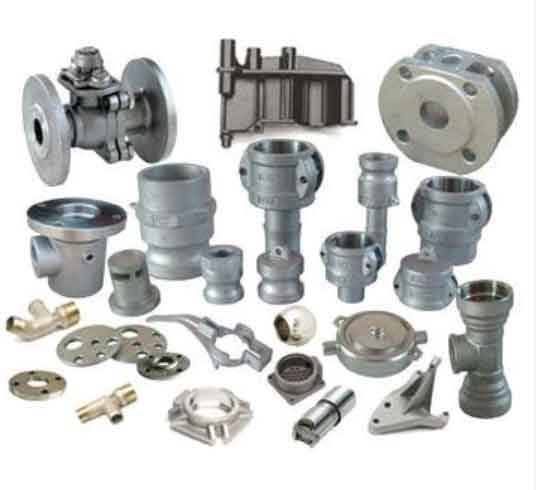When it comes to material selection in steel castings, manufacturers offer a wide range of options to suit various applications and requirements. Here are some commonly available materials that steel casting manufacturers may offer:

- Carbon Steel: Carbon steel is a popular choice for steel castings due to its versatility and cost-effectiveness. It offers good strength, hardness, and wear resistance. Carbon steel castings are commonly used in machinery, automotive components, construction equipment, and general engineering applications.
- Alloy Steel: Alloy steels contain additional alloying elements such as chromium, nickel, molybdenum, or manganese to enhance specific properties. These materials provide improved strength, toughness, and corrosion resistance compared to carbon steel. Alloy steel castings are commonly used in industries such as oil and gas, aerospace, power generation, and automotive.
- Stainless Steel: Stainless steel castings are known for their excellent corrosion resistance and high-temperature strength. They are commonly used in applications where corrosion resistance is critical, such as marine equipment, chemical processing, food processing, and medical equipment.
- Tool Steel: Tool steels are specially designed to withstand high temperatures, abrasion, and mechanical stress. They offer excellent hardness, wear resistance, and toughness. Tool steel castings are commonly used for molds, dies, cutting tools, and other applications that require high strength and wear resistance.
- Heat-Resistant Steel: Heat-resistant steels are specifically formulated to withstand high temperatures and thermal cycling. They exhibit excellent creep resistance, oxidation resistance, and thermal stability. Heat-resistant steel castings find applications in industries such as power generation, petrochemical, and furnace components.
- Wear-Resistant Steel: Wear-resistant steels are engineered to withstand abrasive and erosive conditions. They offer exceptional hardness, toughness, and resistance to wear and impact. Wear-resistant steel castings are commonly used in mining equipment, crushing machinery, and wear components in various industries.
- Corrosion-Resistant Steel: Corrosion-resistant steels are designed to resist corrosion in aggressive environments, including acidic or alkaline conditions. They offer a combination of high strength and corrosion resistance. Corrosion-resistant steel castings are commonly used in chemical processing, marine equipment, and offshore applications.
- Low Alloy Steel: Low alloy steels contain small amounts of alloying elements, typically less than 5%. They offer improved mechanical properties compared to carbon steel, such as higher strength and better impact resistance. Low alloy steel castings are used in various applications, including automotive parts, construction machinery, and heavy equipment.
It’s important to consult with steel casting manufacturers to understand the specific materials they offer and their suitability for your application. Manufacturers can provide guidance on material selection based on your requirements, including strength, corrosion resistance, heat resistance, and other performance characteristics. They can also assist with material testing and certification to ensure compliance with relevant standards and specifications.
